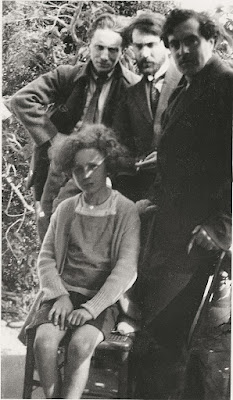BLAISE PASCAL directed by Roberto Rossellini
Blaise Pascal, Italy-France 1972 Dir Roberto Rossellini with Pierre Arditi. 131min
Paul Murphy, Berlin
Blaise Pascal is a perhaps better realised historical docu-drama than The Era of Cosimo Medici, better realised because it tends to dramatise more completely its subject and his era. There is a definite tension in the film between the forces of science and religion, summed up in the life of the mathematician, philosopher Blaise Pascal. Pascal grows up under the auspices of his father in their mansion in the Auvergne. Blaise Pascal´s father is a local judge, a member of the minor nobility, passionately interested in science and mathematics. The details of Blaise Pascal´s life are adumbrated in the film, his journey from science and scepticism to his embracing of religion, which is seen very much as a death bed recantation. The historical backdrop is 17th century France. One thinks of The Three Museketeers or The Flashing Blade, other docu-soaps aimed at entertainment yet to some extent narrowing any real appreciation of actual events. The era held religious conflict and quandries. Witchcraft and Jansenism are mentioned in the film, unorthodox or heretical beliefs that sum up real dichotomies between unquestioning faith in religious dogma and the human tendency to question orthodox notions, to be explorative of science, the universe, even when this means inevitable conflict with authority. That authority is encapsulated in the person of Cardinal Mazarin, successor to Cardinal Richelieu. Religious and political authority, subsumed in the same person, for this is pre-Enlightenment France, before the division of state from church.
The film describes Pascal´s main achievements in science, mathematics and geometry: cones, vacuums and his calculating machine. This is entirely fascinating to scientists, but as a work of art this film fails to engage successfully with any real human interest. Pascal, who died a virgin, comes across as a man whose entire life is caught up with theoretical questions. He makes many breakthroughs, very original and significant for that time, but fails to leave any impression upon us as a man. In many respects his life is overly dutiful, overly correct. There is no moment in the film when he goes down the local for a pint, drinks heavily, chats up the barmaid, coarsely groping her tits. There is absolutely no sign that he was anything but an earnest, serious philosopher, scientist, a person of immense integrity and dignity. So it is unsurprising that he died a virgin, he can´t really have had very much of a life at all. Like Cosimo, he is a man so admirable, so earnest and remote that it is hardly believable that he could have survived for one moment in our world without dying a slow and agonizing death of boredom. That was my feeling during this film, were it not for the accidental and unintentional laughs that the film provides all the way through, from the ludcriously stilted acting to the sets crammed full of (what we must believe to be) period junk. Rossellini fails to bring these characters to life, for they lived and must have had life, which is wine, women, song, strong liqour, dancing, merriment, whatever. Rossellini creates Blaise Pascal, a genius born and bred at the bottom of a lake, disengaged from ordinariness or even fun. Once again we have this primitive, naïve enchantment with pure knowledge, this is surely communicated.
But in the end it is actually very hard to laugh at this film.
For people who eat, drink and breath Blaise Pascal or Roberto Rossellini.

Comments